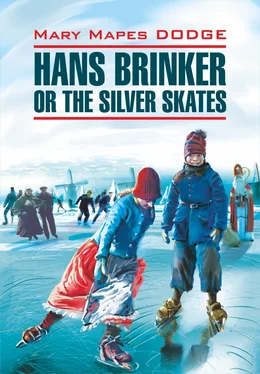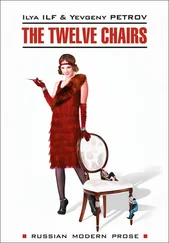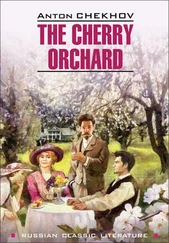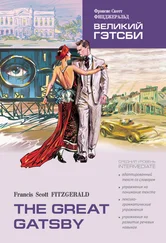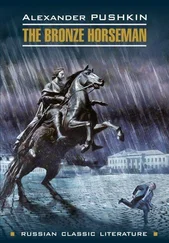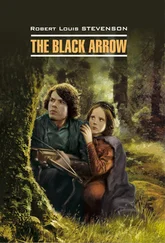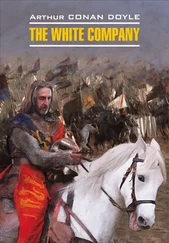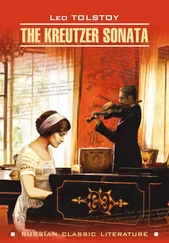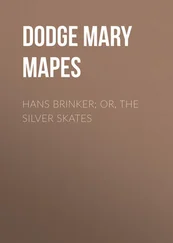“Ha! ha! that’s true, unless you are over two hundred years old. Well, I tell you, sir, there never was anything like it before nor since. Why, persons were so crazy after tulip bulbs in those days that they paid their weight in gold for them.”
“What, the weight of a man!” cried Ben, showing such astonishment in his eyes that Ludwig fairly capered.
“No, no, the weight of a BULB. The first tulip was sent here from Constantinople about the year 1560. It was so much admired that the rich people of Amsterdam sent to Turkey for more. From that time they grew to be the rage [116] they grew to be the rage – ( разг. ) они все больше входили в моду
, and it lasted for years. Single roots brought from one to four thousand florins; and one bulb, the Semper Augustus, brought fifty-five hundred.”
“That’s more than four hundred guineas of our money,” interposed Ben.
“Yes, and I know I’m right, for I read it in a translation from Beckman, only day before yesterday. Well, sir, it was great. Everyone speculated in tulips, even bargemen and rag women and chimney sweeps. The richest merchants were not ashamed to share the excitement. People bought bulbs and sold them again at a tremendous profit without ever seeing them. It grew into a kind of gambling. Some became rich by it in a few days, and some lost everything they had. Land, houses, cattle, and even clothing went for tulips when people had no ready money. Ladies sold their jewels and finery to enable them to join in the fun. Nothing else was thought of. At last the States-General interfered. People began to see what dunces they were making of themselves [117] what dunces they were making of themselves – ( разг. ) какими дураками они себя выставляют
, and down went the price of tulips. Old tulip debts couldn’t be collected. Creditors went to law [118] went to law – ( разг. ) подали в суд
, and the law turned its back upon them; debts made in gambling were not binding, it said. Then there was a time! Thousands of rich speculators were reduced to beggary in an hour. As old Beckman says, ‘The bubble was burst at last.’”
“Yes, and a big bubble it was,” said Ben, who had listened with great interest. “By the way, did you know that the name tulip came from a Turkish word, signifying turban?”
“I had forgotten that,” answered Lambert, “but it’s a capital idea. Just fancy a party of Turks in full headgear squatted upon a lawn – perfect tulip bed! Ha! ha! Capital idea!”
“There,” groaned Ludwig to himself, “he’s been telling Lambert something wonderful about tulips – I knew it!”
“The fact is,” continued Lambert, “you can conjure up quite a human picture of a tulip bed in bloom, especially when it is nodding and bobbing in the wind. Did you ever notice it?”
“Not I. It strikes me, Van Mounen, that you Hollanders are prodigiously fond of the flower to this day.”
“Certainly. You can’t have a garden without them; prettiest flower that grows, I think. My uncle has a magnificent bed of the finest varieties at his summer house on the other side of Amsterdam.”
“I thought your uncle lived in the city?”
“So he does; but his summer house, or pavilion, is a few miles off. He has another one built out over the river. We passed near it when we entered the city. Everybody in Amsterdam has a pavilion somewhere, if he can.”
“Do they ever live there?” asked Ben.
“Bless you, no! They are small affairs, suitable only to spend a few hours in on summer afternoons. There are some beautiful ones on the southern end of the Haarlem Lake – now that they’ve commenced to drain it into polders, it will spoil THAT fun. By the way, we’ve passed some red-roofed ones since we left home. You noticed them, I suppose, with their little bridges and ponds and gardens, and their mottoes over the doorway.”
Ben nodded.
“They make but little show, now,” continued Lambert, “but in warm weather they are delightful. After the willows sprout, uncle goes to his summer house every afternoon. He dozes and smokes; aunt knits, with her feet perched upon a foot stove, never mind how hot the day; my cousin Rika and the other girls fish in the lake from the windows or chat with their friends rowing by; and the youngsters tumble about or hang upon the little bridges over the ditch. Then they have coffee and cakes, beside a great bunch of water lilies on the table. It’s very fine, I can tell you; only (between ourselves), though I was born here, I shall never fancy the odor of stagnant water that hangs about most of the summer houses. Nearly every one you see is built over a ditch. Probably I feel it more, from having lived so long in England.”
“Perhaps I shall notice it too,” said Ben, “if a thaw comes. The early winter has covered up the fragrant waters for my benefit [119] for my benefit – ( шутл. ) специально ради меня
– much obliged to it. Holland without this glorious skating wouldn’t be the same thing at all.”
“How very different you are from the Poots!” exclaimed Lambert, who had been listening in a sort of brown study [120] in a sort of brown study – ( разг. ) погрузившись в размышления
. “And yet you are cousins – I cannot understand it.”
“We ARE cousins, or rather we have always considered ourselves such, but the relationship is not very close. Our grandmothers were half-sisters. MY side of the family is entirely English, while he is entirely Dutch. Old Great-grandfather Poot married twice, you see, and I am a descendant of his English wife. I like Jacob, though, better than half of my English cousins put together. He is the truest-hearted, best-natured boy I ever knew. Strange as you may think it, my father became accidentally acquainted with Jacob’s father while on a business visit to Rotterdam. They soon talked over their relationship – in French, by the way – and they have corresponded in the language ever since. Queer things come about in this world. My sister Jenny would open her eyes at some of Aunt Poot’s ways. Aunt is a thorough lady, but so different from mother – and the house, too, and furniture, and way of living, everything is different.”
“Of course,” assented Lambert, complacently, as if to say You could scarcely expect such general perfection anywhere else than in Holland. “But you will have all the more to tell Jenny when you go back.”
“Yes, indeed. I can say one thing – if cleanliness is, as they claim, next to godliness, Broek is safe. It is the cleanest place I ever saw in my life. Why, my Aunt Poot, rich as she is, scrubs half the time, and her house looks as if it were varnished all over. I wrote to mother yesterday that I could see my double always with me, feet to feet, in the polished floor of the dining-room.”
“Your DOUBLE! That word puzzles me; what do you mean?”
“Oh, my reflection, my apparition. Ben Dobbs number two.”
“Ah, I see,” exclaimed Van Mounen. “Have you ever been in your Aunt Poot’s grand parlor?”
Ben laughed. “Only once, and that was on the day of my arrival. Jacob says I shall have no chance of entering it again until the time of his sister Kanau’s wedding, the week after Christmas. Father has consented that I shall remain to witness the great event. Every Saturday Aunt Poot and her fat Kate go into that parlor and sweep and polish and scrub; then it is darkened and closed until Saturday comes again; not a soul enters it in the meantime; but the schoonmaken [121] schoonmaken – ( голл. ) уборка
, as she calls it, must be done just the same.”
Читать дальше
